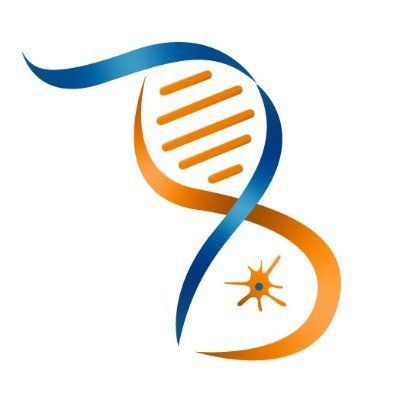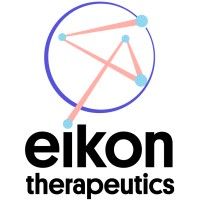预约演示
更新于:2026-01-31
BDB-018
更新于:2026-01-31
概要
基本信息
药物类型 小分子化药 |
别名 BDB 018、BDB-018 |
作用方式 激动剂 |
作用机制 TLR7激动剂(Toll样受体7激动剂)、TLR8激动剂(Toll样受体8激动剂) |
治疗领域 |
在研适应症 |
非在研适应症- |
权益机构- |
最高研发阶段临床1期 |
首次获批日期- |
最高研发阶段(中国)- |
特殊审评- |
登录后查看时间轴
关联
1
项与 BDB-018 相关的临床试验NCT04840394
Phase 1 Open-Label Dose Escalation Study of BDB001 as a Single Agent and in Combination With Pembrolizumab in Subjects With Advanced Solid Tumors
A Phase 1 Open-label Dose Escalation Trial of BDB018 in Monotherapy and in Combination with Pembrolizumab in Subjects with Advanced Solid Tumors
开始日期2021-06-22 |
申办/合作机构 |
100 项与 BDB-018 相关的临床结果
登录后查看更多信息
100 项与 BDB-018 相关的转化医学
登录后查看更多信息
100 项与 BDB-018 相关的专利(医药)
登录后查看更多信息
5
项与 BDB-018 相关的新闻(医药)2025-10-16
·动脉网
2025年2月,美国生物医药公司Eikon Therapeutics(下称“Eikon”)宣布完成3.5亿美元D轮融资,至此累计融资额已超过11亿美元。在全球生物医药投融资降温的大背景下(以纳斯达克小盘生物股指数XBI为例,自2021年高点回调近六成),Eikon逆势获得巨额资金,成为少数被资本持续追捧的创新药企之一。
资本为何在投资收缩期仍押注Eikon?答案或许就藏在其独特的研发方法论中:通过观测细胞内分子的动态运动,改变药物发现的方式。
传统药物研发中,科学家往往依靠静态数据理解分子作用机制,而Eikon的技术能够实时追踪细胞内蛋白质与小分子的相互作用过程。对于药物研发而言,这种“动态成像”观测能力可精准筛选潜在药物,快速排除无效化合物,因而成为资本眼中的稀缺标的。
01
从诺奖实验室到产业化
Eikon的故事始于2014年诺贝尔化学奖。当年,Eric Betzig因研发超分辨率显微镜技术(super resolution fluorescence microscopy)获奖,该技术突破传统光学显微镜约200纳米的分辨率极限,从而能够以超高的清晰度来观察细胞内的细微结构并且追踪蛋白的运动,将科研工具从模糊望远镜升级为分子摄像机。
图1:常规光学荧光显微镜(左)和超分辨率荧光显微镜(右)的成像比较
2019年,Betzig与加州大学伯克利实验室科学家共同创立Eikon,将显微镜革命从实验室延伸至药物研发。2022年成为关键转折点。默沙东前全球研发负责人Roger Perlmutter加盟担任CEO,其曾主导肿瘤免疫疗法Keytruda(帕博利珠单抗)的上市,该药物2023年销售额达250亿美元,登顶全球“药王”。
Perlmutter的加入推动Eikon从科学驱动向临床驱动战略转型。
图2:Eikon Therapeutics创始团队人物画像
图3:Eikon Therapeutics利用超分辨率荧光显微技术在活细胞中追踪单个蛋白的示意图
自2019年成立以来,Eikon持续获得资本市场青睐,截至C轮融资累计募集资金超11亿美元,为技术平台迭代与临床管线推进提供坚实资金支持。与Recursion(依赖自动化成像与AI算法挖掘药物)、Schrödinger(以分子模拟和物理建模为核心)等技术平台型公司不同,Eikon的SMT技术通过实时观察单分子动态行为,为药物发现提供了精准的时空维度信息。
表1:Eikon Therapeutics融资情况一览
02
硬件+算法+自动化,构建可工业化的成像体系
Eikon的技术平台强调跨学科整合与工程化实现。公司在内部自建了专有显微镜系统,由硬件、光学和电气工程师共同设计开发,并结合药物研发科学家、化学家和生物学家的反馈进行持续迭代。这种模式确保了设备设计与最终实验需求的紧密贴合,使其能够稳定捕获高质量的单分子追踪(Single Molecule Tracking,SMT)数据,并在药物发现环节直接服务于研发团队。
图4:Eikon Therapeutics内部研发的专有显微镜系统操作图
在数据处理层面,Eikon依赖人工智能与机器学习来应对成像所带来的庞大数据量。其全自动仪器每天可生成接近PB级的数据规模,成为全球最大的数据生产者之一。为此,公司组建了由30余名来自Alphabet、Meta等科技公司的软件工程师和数据科学家组成的团队,开发新一代基于机器学习的分析算法,以提取蛋白质在活细胞环境中的多维度行为信息。
图5:Eikon Therapeutics技术整合示意
除了硬件与算法,Eikon也重视试剂与自动化体系的开发。公司自主研发新型染料、细胞系工程工具和耗材,并搭建自动化的成像与检测平台,使单分子成像具备规模化和稳定性。这不仅提高了实验效率,也保证了从材料到设备的全链路可控性。
技术的核心在于其SMT平台。Eikon采用创新的斜线扫描(Oblique Line Scanning,OLS)技术,实现了对活细胞内蛋白质的高速动态追踪。与传统显微镜只能记录分子位置的不同,SMT能够在毫秒级时间、纳米级空间分辨率下,实时追踪分子的运动轨迹。在单次实验中,每台设备可在不到一秒的时间内同步跟踪上百个细胞中数十万分子的动态。这类多维度数据不仅能揭示蛋白质在不同细胞状态下的功能,还能帮助推断药物结合、解离及作用机制。
与传统方法相比,该平台在真实细胞环境中获取动态过程数据,通过自动化实现高通量研发,有效提升药物筛选效率。
03
覆盖免疫调节与DNA修复,聚焦肿瘤领域
随着平台成熟,Eikon加速管线布局。2023年6—7月,连续完成三笔外部授权合作:从博迪生物引进TLR7/8激动剂BDB001和BDB018(后命名为EIK1001);从英派药业引进选择性PARP1抑制剂EIK1003和EIK1004;从Cleave Therapeutics获得系列临床前项目。
不同于单纯引进,Eikon 试图将外部资产与自有研发纳入同一个体系。在单分子活细胞成像的基础上,公司还叠加 AI 算法与自动化实验平台,把靶点验证、分子筛选和数据建模串联起来,既能更快验证引进项目的作用机制,也能支撑自研管线的持续孵化。
在单分子活细胞成像平台的支撑下,Eikon已建立覆盖免疫调节与DNA修复通路的管线,截至2025年,重点推进四个核心项目。
图6:Eikon Therapeutics管线进展情况一览
EIK1001是一款Toll样受体7/8(TLR7/8)共激动剂,旨在激活固有免疫并增强T细胞活化,提升肿瘤免疫清除能力。目前正在治疗晚期黑色素瘤的Ⅲ期临床(NCT06697301)中,联合PD-1抑制剂的早期结果显示出良好安全性和潜在疗效提升。
在DNA修复方向,Eikon布局两款PARP1抑制剂和一款WRN抑制剂。EIK1003聚焦BRCA突变或HRD(同源重组修复缺陷)相关的卵巢癌和乳腺癌,已进入Ⅰ/Ⅱ期临床,中期数据显示缓解率和耐受性优于传统PARP抑制剂。
EIK1004具备中枢神经系统(CNS)穿透能力,正处于I期临床,探索其在脑癌等CNS肿瘤中的DNA修复抑制潜力,初步药代动力学结果积极。EIK1005为公司内部开发的WRN抑制剂,靶向微卫星不稳定(MSI-H)及其他DNA修复缺陷型肿瘤,目前处于临床前阶段。
除核心管线外,Eikon还在探索早期免疫调节及雄激素受体拮抗剂项目,均依托成像平台加速筛选和机制验证。
与现有疗法相比,Eikon的策略更具选择性和差异化。以PARP抑制剂为例,市场已有奥拉帕利(Olaparib)、鲁卡帕利(Rucaparib)和他拉唑帕利(Talazoparib)等药物,但它们常因选择性不足导致毒副作用或耐药。EIK1003和EIK1004聚焦PARP1高度选择性,目标是降低副作用并延缓耐药。
整体而言,Eikon的管线既针对现有疗法的瓶颈(耐药与持久性不足),又充分发挥其成像平台优势,在肿瘤免疫和DNA修复两个方向探索突破口。
04
诺奖级动态成像技术与差异化临床管线
在生物医药投融资趋紧的背景下,Eikon Therapeutics依然斩获超11亿美元融资,其核心竞争力可归纳为两重:诺奖级动态成像技术与差异化临床管线。
首先是技术的稀缺性。动态成像在药物研发中仍属少见路径,Eikon借助这一手段在活细胞内实时追踪蛋白质动态,为机制研究和药物设计提供了新的工具。如果这一模式在临床上被证明可行,它带来的影响可能不止于一两款药物,而更像Illumina在测序领域的角色——为行业提供一种更值得借鉴的研发思路。
团队构成则保证了从科学到临床的转化力。Betzig带来技术背书,而前默沙东研发掌门Roger Perlmutter的加入,则让资本看到了临床落地与商业化的确定性。这种“科学+产业”组合,类似Relay Therapeutics与Insitro早期融资时的路径,均因顶级科学家和前大药企高管的合作而备受追捧。
在管线方面,Eikon已经将平台能力转化为临床验证资产,其中EIK1001已进入Ⅲ期临床,直接降低了投资的不确定性。这使公司不再仅仅依赖平台讲故事,而是能用临床进展证明商业潜力。
从行业与政策大势来看,Eikon的模式踩中了可落地创新的投资逻辑。据PhRMA报道数据,新药研发平均需10–15年、投入26亿美元,而成功率不足10%。在这种高投入、低成功率的背景下,能加速靶点发现、为联合疗法设计提供动态数据的平台尤为稀缺。同时,美国在孤儿药独占期、专利保护和税收优惠上的政策支持,也进一步提升了创新模式的回报确定性。Eikon虽需大规模前期投入,但一旦临床和监管通过,其壁垒更高,回报也更稳健。
05
从Eikon看中国Biotech的机会
Eikon发展并非坦途。其首要挑战在于技术复杂性与转化风险:从分子成像到确证疗效,过程漫长且难度极高。管线布局也进入竞争激烈的赛道,例如PARP抑制剂已被阿斯利康等巨头占先,Eikon必须依靠差异化设计和临床数据来证明价值。再加上弱化工具业务后,公司几乎完全依赖管线成功,风险集中度很高。
但这恰恰为中国Biotech提供了启示:
其一,跨学科整合是形成壁垒的关键。Eikon能在靶点发现上建立优势,依赖于光学成像、计算建模与药理学的深度结合。国内Biotech也正尝试以多学科协同打破单一技术局限,探索差异化竞争路径。例如英矽智能(Insilico Medicine)通过“AI+实验+临床”一体化研发推进自研管线,晶泰科技(XtalPi)则结合量子物理计算、AI与机器人与大规模云计算,实现对创新药物研发多个重要环节的降本增效。
其二,平台必须走向药物。Eikon在成立之初就同步推进成像平台和在研管线,避免停留在工具化公司的叙事。类似的趋势在国内也日益明显。百图生科(BioMap)、深势科技(DeePhi Tech)等企业都在强调自研管线,尝试把平台故事转化为可验证的药物研发路径,以临床数据来证明平台价值。
其三,资本更看重科学突破如何转化落地为产品。Eikon能在资本寒冬中仍获超10亿美元融资,正因其突破不是概念而是直指药物创新。在中国市场,投资逻辑也在发生转变:相比单纯的技术概念,资本更青睐“技术—平台—药物—临床”的完整链条,这一点在近两年多家Biotech的融资案例中已有体现。
Eikon的故事是一面镜子:科学如何与工程结合,平台如何转化为药物,企业如何在资本寒冬中脱颖而出。这些,才是对中国Biotech最具价值的参考。
如果您想对接文章中提到的项目,或您的项目想被动脉网报道,或者发布融资新闻,请与我们联系;也可加入动脉网行业社群,结交更多志同道合的好友。
近
期
推
荐
声明:动脉网所刊载内容之知识产权为动脉网及相关权利人专属所有或持有。未经许可,禁止进行转载、摘编、复制及建立镜像等任何使用。文中如果涉及企业信息和数据,均由受访者向分析师提供并确认。
动脉网,未来医疗服务平台
免疫疗法核酸药物
2023-07-16
·研发客
// 被Perlmutter及其公司Eikon收入囊中的博迪生物的TLR7/8受体激动剂,已经看到疗效且安全性良好;英派药业的高选择性PARP1选择性抑制剂,预计可在人体达到很高的暴露量和更好的安全性,应用空间广阔,即将提交IND。两家中国药企——博迪生物(Seven and Eight Biopharmaceuticals)和英派药业的在研项目,尽管尚处在早期阶段,但因为差异化特色,而吸引了行业大咖Roger Perlmutter的注意,将其收入囊中,合作推进临床开发。在制药界,Roger Perlmutter鼎鼎大名。他曾在默沙东工作12年,并担任执行副总裁和默克实验室(Merck Research Laboratories)总裁,领导了包括K药(Keytruda)在内的多款重要产品的研发。此外,他还在安进担任执行副总裁和研发主管多年。2021年,美国加州的生物技术初创公司Eikon Therapeutics宣布,Perlmutter加入该公司并担任CEO。Eikon成立于2019年,据其网站,该公司的研发平台基于联合创始人Eric Betzig所发明的超分辨率荧光显微镜,Betzig因此获得了2014年的诺贝尔化学奖。Perlmutter曾公开解释了Eikon这一前沿技术:“使用超分辨率显微镜,我们可以追踪单个分子。也就是说,我们可以在任何单个蛋白分子上放置荧光探针,计算荧光探针的位置,并且看到活细胞内部的单个蛋白,分辨率可以达到10亿分之1米。”Roger Perlmutter 图片来源|EndpointsPerlmutter表示,“Eikon的首要目标是发现和开发重要的新药”,他相信,通过超分辨率显微镜以及公司软件团队藉此所获得的海量数据,“不仅可以识别出药物靶点,还能识别出已知靶点但尚未发现的药物”。不过,截至目前,Eikon尚未公布任何在研产品的信息。刚刚过去的6月1日,Eikon宣布获得了近1.06亿C轮融资,将该公司成立以来所获得的融资总额推高至近7.75亿美元。同时,Eikon还宣布从3家公司购入资产,包括博迪生物的两款已进入临床试验阶段的TLR7/8激动剂、英派药业即将提交IND的PARP1选择性抑制剂,以及Cleave Therapeutics的临床前资产。谈及为何选择从外部购买资产,Perlmutter在接受Fierce Biotech采访时透露,今年初的JPMorgan大会上,Eikon与30多家公司举行了会议,会上有很多公司都愿意与Eikon建立合作伙伴关系。Perlmutter说,“这是一个机会窗口,因为现在人们渴望进来,但以后可能就不会,所以我们现在就做”。Eikon并未在新闻稿中透露这三笔交易的财务条款,不过Perlmutte表示,价格“在当下的环境下是公平的”。他在采访中将Eikon描述为一家具有竞争力的公司,可以从那些需要国际资源一起开发自己项目的生物技术公司手中接过接力棒。尽管融资环境更为困难,但Perlmutte认为,Eikon前期获得的资金足够支付新资产的早期临床开发费用。另一方面,药企愿意与Eikon合作的原因之一是Perlmutter及其团队的学术专业性以及卓越的临床运营能力。合作方博迪生物的CEO 刘华涛博士和英派药业的CEO 蔡遂雄博士在接受研发客采访时,都提到Perlmutter及其搭档——Eikon的CMO、前默沙东默克实验室CMO和全球临床开发负责人 Roy Baynes对项目的独到眼光和执行力。那么,博迪生物和英派药业这两家中国药企的早期项目,又是凭什么吸引了Perlmutter团队的注意呢?首款静脉给药且看到临床疗效的TLR7/8根据新闻稿,Eikon获得了博迪生物两款已经进入临床的Toll样受体(TLR)7/8激动剂BDB001和BDB018,以及尚处在临床前阶段的Toll样受体配体/抗体偶联(TLAC)产品的全球独家权益。拓展阅读Seven&Eight 八年只做一件事 | DJS刘华涛告诉研发客,在认真查看了BDB001已经完成的1期研究的每位患者数据后,Baynes主动提出了合作意向。考虑到后续的开发需要大量资金,“他们(Eikon)的决策比较快,我们希望能把这个药做成,所以选择和他们合作”。看上去Perlmutter和刘华涛的愿望一致。在接受Endpoints采访时,Perlmutter表示,“Roy (Baynes)和他的团队已经设计好了下一组临床试验。原则上,这些试验可以用于注册,但我们还需要与监管机构进行大量的讨论。”来源|博迪生物官网刘华涛介绍,TLR是一类重要的受体家族,配体与树突状细胞(DC)上的TLR结合后,可激活特定的细胞内信号级联,从而启动宿主针对病原体和肿瘤细胞的防御反应。近年来的基础科学研究已经证明,使用TLR特异性激动剂可以促进针对肿瘤的免疫结合。其中,TLR7和TLR9在浆细胞样DC(pDC)上表达,而TLR8在髓样DC(mDC)上表达。拓展阅读TLR激动剂能否重塑肿瘤免疫游戏规则|边研PD-1耐药后TLR7/8激动剂能否带来转机 | 边研抗体-TLR激动剂偶联物与TLR激动剂的2021 | 边研之前几款针对TLR9受体的瘤内给药的候选药物,如vidutolimod(CMP-001)、SD-101和tilsotolimod(IMO-2125)在黑色素瘤的治疗上取得不错的疗效,但CpG分子瘤内给药的方式限制了这一类药物在其他实体瘤上的使用。而能同时激活两类DC的TLR7/8抑制剂,如MEDI-9197和NKTR-262都因为安全性问题而停止开发。“之前药物没有成功,以至于大家认为这类TLR7/8受体激动剂的治疗窗比较窄,多集中在瘤内注射,但激活免疫是系统性的,”刘华涛解释说,“我们研发出的BDB001是首款静脉给药且看到临床疗效的TLR7/8受体激动剂,而且不论是单药还是与抗PD-(L)1联用,都具有很好的安全性。我们在分子的选择上,剂量和给药模式的摸索上下了更多的功夫。 我们认为ADC的潜力也很大。”安全性良好的高选择性PARP1抑制剂Eikon还从另一家中国药企英派药业获得了包括IMP1734在内的高选择性PARP1抑制剂中国以外的独家权益。目前已经有4款PARP抑制剂在全球成功上市。蔡遂雄介绍,这些分子均同时靶向PARP1和PARP2。然而,研究发现,这两个靶点中,PARP1抑制主要与药效相关,PARP2抑制非但与药效关系不大,还导致了血液学毒性。因此,与第一代PARP抑制剂相比,高选择性PARP1抑制剂可以在人体上达到高很多倍的暴露量且安全性良好,具有很好的应用前景。“最大的用处就是今后可以做很多联合用药,与化疗、靶向药和ADC都可以联用,有可能成为又一个类似PD-1抑制剂类的热门靶点。”蔡遂雄说道。而对于PARP抑制剂,Perlmutter和Baynes并不陌生。在默沙东时,两人即深度参与了与阿斯利康合作的PARP抑制剂奥拉帕利,以及目前由GSK/强生和再鼎一起销售的尼拉帕利的开发。此外,Perlmutter还告诉Endpoints,Eikon使用超分辨率显微镜观察了PARP1和PARP2两种蛋白之间的差异,支持了PARP2会导致毒性这个观点。“我们相信,这给了我们一些特别的见解,有助于我们设计开发计划。”Perlmutter说。蔡遂雄在接受研发客采访时同样提到了这一点。他表示,今年二季度到三季度的时候,公司将在中美提交IMP1734的IND,“在申报IND前,英派希望与国际上有实力的药企达成合作,加速临床开发”。而英派在多家公司中最后选择Eikon作为合作方的原因,一方面是由于Eikon的“高分辨率显微镜可以帮助更好地开发PARP1抑制剂”,另一方面,Perlmutter及其团队曾经深入参与过PARP抑制剂的开发也是重要的考量因素。编辑 | 姚嘉yao.jia@PharmaDJ.com总第1918期访问研发客网站可浏览更多文章www.PharmaDJ.com
临床申请并购
2023-06-08
·药时代
超级人源化抗体改造技术:突破传统免疫原性优化的边界 | 晶泰科技·药时代直播间第4期正文共:4762字 4图预计阅读时间:13分钟作者 | 辰公子文章来源 | 药时代公众号封面图来源 | 《三国演义》如果给过去10年上市的药物做一个排名,评价其成功程度的话,Keytruda(K药)大概可以排进前3,排第1或许存在争议,但肯定会有一批拥趸。在K药的成功之路上,一个绕不开的名字是Roger Perlmutter——时任默沙东的执行副总裁兼实验室负责人。Perlmutter博士具有医学背景,早在1997年就加入了默沙东任研发部资深副总裁,不过在2001年却出走安进,在安进担任研发负责人,度过了11年的时光。直到2013年,默沙东的研发负责人Peter S. Kim博士光荣退休后,Perlmutter博士才重归老东家,接任了这一职位。在默沙东的第二段职业生涯里,Perlmutter博士做出最大的贡献就是准确判断了K药的价值,并确定了其开发路线。他拍板定下了基于生物标记物的开发方法,并因此让K药在NSCLC上赢下了“关键战役”;给联用定下了方略,为K药现今2100多项临床试验的注册,数十项适应症的获批奠定了基础。如果说欧加农的PD-1团队是“K药之父”,那么默沙东里的Perlmutter博士团队则可以被冠以“K药教父”的名头。在K药的开发上,Perlmutter博士展现了敏锐的洞察力和毒辣的眼光,并留下了一句格言,“当你意识到这东西的潜在价值后,就应该把全部职业生涯压上去。”然而,Perlmutter博士却并没有陪着K药一路走下去,他对K药的偏爱引发了一些不满的声音,有分析师认为,对于默沙东这个体量的公司来说,他们有些过于依赖K药了。最终,Perlmutter博士在2020年向默沙东正式递交了辞职申请。“Perlmutter要去哪?”成为了热议的话题。悬念并没有持续太久,转过年来的5月,Roger Perlmutter便宣布加入了一家初创公司并担任首席执行官,将这家名为Eikon Therapeutics的小biotech带入了人们的视野。从Perlmutter博士后续的动作来看,这里俨然成为他下一个“押注职业生涯”的地方。诺奖得主亲自下场Perlmutter博士加入Eikon后,还从老东家默沙东那里挖来了2位重量级的高管。一位是默沙东公司前全球临床开发高级副总裁兼首席医疗官Roy D. Baynes博士,另一位则是默沙东前全球CEO Kenneth C. Frazier。他们于2022年3月份宣布加入Eikon,Baynes博士担任Eikon执行副总裁兼首席医疗官,Frazier则加入Eikon董事会担任独立董事,与Perlmutter博士一起组成了“老默三巨头”。不好意思,放错图了。左:Roy D. Baynes,中:Roger Perlmutter,右:Kenneth C. Frazier此外,默沙东前实验室高级副总裁兼BD主管Benjamin Thorner也跟随Perlmutter博士一同加入了Eikon担任总法律顾问首席商务官,负责监督公司所有的法律事务和交易制定。为何这些行业领袖都甘愿加盟这家初创biotech呢?原因可能很简单,这家公司的创始人——Eric Betzig博士,比他们的行业地位更高。这是一位诺贝尔奖得主。2014年,Eric Betzig博士因在开发超分辨率荧光显微技术方面的突出贡献,而摘得了诺贝尔化学奖的桂冠。图源:诺贝尔奖官网虽然获得的是化学奖,但这荧光显微项技术却显然更适合生命科学的工作。在过去的300多年时间里,光学显微镜都是我们观察微观世界的方法,通过这种方法,我们看到了细胞,认识了微生物。但光学方法能看到的东西是有极限的,由于光具有波动性,光源上的一个点在经过显微系统发生衍射后,会投射成一片区域,这片区域就是常说的分辨率。分辨率的大小与光的波长有关,根据公式计算,其最小值为波长的一半。那么在可见光下,我们通过光学显微镜可获得的最小分辨率就只能达到为0.2微米(200纳米),即阿贝衍射极限,也就是我们能观察到的最小尺寸。这个尺寸已经非常细微,但对于想要微观世界里生命物质的科研工作者来说还远远不够。一些中型病毒的尺寸已经小于0.2微米,蛋白质的大小在20纳米左右,DNA的直径仅为2纳米。有大量的细胞器、蛋白质分子是我们无法用光学显微镜看清的。超分辨率荧光显微技术相较于传统成像技术,将分辨率的极限提高了10~20倍,让我们能够直接观察纳米级的分子,给未来生物技术的应用带来无限可能。这也是Eikon成立的基础。观察!观察!Eikon成立之初的主要工作就是用超分辨率显微镜实时观察细胞中蛋白质的运动,为此,他们甚至动用了CRISPR基因编辑技术对目标蛋白进行荧光标记。Perlmutter博士表示,长久以来,我们关于细胞生物化学的几乎所有知识,都来自冷冻或是固定后的细胞样本,制药界一直没什么工具能观察活体细胞的动态调控机制,我们从来没有真的了解过蛋白质的动态。在这种情况下,Eikon通过将物理学、工程学和机器学习进行结合,以拓展传统的药物发现方法,极大的激起了Perlmutter博士的兴趣。因为这能带来海量的、无法通过常规方法获取的高质量数据。高质量数据对现阶段的药物发现至关重要,有了足够的高质量数据,我们就能搭建精准的模型,并对药物的作用进行预测。那么最高质量的数据是什么呢?无疑是人体试验的数据。但相比于体外试验,人体试验的样本量是有限的,甚至是渺小的,这也是“如何用最小的样本量获取最准确的试验结果”成为临床试验设计的重要课题的原因。Eikon的单分子追踪(SMT)可以打造一种介于体外和人体之间的观测目标——观测选定蛋白质在活细胞中的运动轨迹。目前,他们已经可以将观察尺度缩小到10纳米,观测周期缩短至10微妙。观测以时间为单位,SMT技术会绘制每个单位内的蛋白质运动参数,包括蛋白质的结合率、解离率、跳跃长度、角动量以及其在与靶点结合的持续时间等。来源:Eikon官网目前,在计算机的辅助下,Eikon每周可产生的数据量已经达到1.5PB(1 PB=1024 TB =1048576GB ),预计很快就将达到1PB/天的数据生产量。Perlmutter表示,他们的数据服务可存储约20PB的数据,与很多大型制药公司从成立至今保存的数据量相当。Perlmutter博士认为,现在每一款能改善病情的药物的诞生都是一种奇迹,因为人们对疾病背后的病理原因都没有很深的理解。目前出了几种能治疗单基因遗传病的基因疗法外,所以药物都只能通过弥补病理损害的方式取得获益,是“治标不治本”的方法。通过在药物发现环节引入SMT技术,可以给过去难以成药的靶点构建新的生物学机制,Eikon已经借此催生出了很多项目。这或许是Perlmutter博士愿意在Eikon“押上下一段职业生涯的原因”。2年融资7.75亿美元却开始疯狂License in?即便是在资本寒冬的岁月,Eikon这样的明星Biotech也不缺融资。2021年5月5日,Eikon宣布完成1.48亿美元的A轮融资,领投公司The Column Group,参投公司 包括Foresite Capital、Innovation Endeavors 和 Lux Capital。2022年1月6日,Eikon宣布完成5.178亿美元的B轮融资,此次融资除了首轮参与的4家投资机构外,还增加了13个投资机构,其中不乏General Catalyst、StepStone这样的知名投资机构,以及2家加拿大的政府投资。2023年6月1日,Eikon再次透露了正在进行约1.06亿美元C轮融资的计划。至此,从Perlmutter博士加入之后的2年多时间里,Eikon已经完成超7.7亿美元的融资,投资者争相给钱,对其极为看好。难么,拿到六七亿美元后,Eikon做了什么呢?主要有三件事。第一,平台打造。SMT技术所需的CRISPR基因编辑和蛋白质荧光标记、超分辨率显微镜、分析数据所需的分析软件、自动运行SMT的自动化系统,可存储20 PB的存储器......直接硬件投资相对一般的初创biotech要大很多。第二,扩张团队。根据几篇不同时期的报道,Eikon一直在快速扩张团队。2022年初时,公司已建立了大约100人的团队,而到了2023年6月,公司已经扩张到了350人,其中最大的部分是软件工程师团队,约300人。从人员构成的角度讲,说Eikon是一家AI公司也不为过。此外,他们还计划在今年年底前将团队扩建至460人。第三,大举引进产品。2023年6月1日,Eikon一口气宣布达成3笔交易,其中有2笔是和中国公司达成的合作。具体包括:与英派药业引进就IMP1734及其他PARP1选择性抑制剂签订独家授权及合作协议,获得除大中华区以外所有区域内独家开发、生产和商业化的权利。从博笛生物(Seven and Eight Biotherapeutics)引进两款TLR7/8双激动剂项目,分别是BDB001和BDB018 ,获得其全球权利。从Cleave Therapeutics处引进了一系列临床前项目,用于解决蛋白质稳态、DNA损伤修复和染色质重塑的问题。这些功能在肿瘤和神经退行性疾病中有重要意义。这波操作让Eikon一下子多了2款临床阶段的产品和1款即将进入临床阶段的产品,这步操作可能会让一些人大跌眼镜。作为一家致力于改变药物发现流程、靶向不可成药靶点,坐拥诺奖得主、K药教父和一众顶级制药界领袖的biotech,在2年融到7亿多美元后,一口气引进了4款产品,确实会有一种“挂羊头卖狗肉”的嫌疑。Eikon是怎么想的呢?把技术用在合适的地方对于License in的行为,Perlmutter博士给了一段意味深长的解释:对Eikon来说,蛋白质追踪技术确实是一件利器,可以帮助我们很好的发现药物靶标,并构建内部管线。但Eikon的成立却并非是为了单纯的商业目的,公司的目标是帮助项目更好的推进,无论这个项目是否来源于公司内部。我们希望能在合适的开发阶段,将我们的技术恰当的用在药物上以便其最终得以商业化。我们的业务并非售卖“一技之长”。这段话读着似懂非懂,不过结合当下创新药开发的全球环境,我们大致能感受到Perlmutter博士的意思。对于药企或者研发人员来说,做源头创新是诱人的,但对整个医疗环境来讲,却未必是最优解。源头创新的好处是竞争小,但费时费力,凭一家之力很难在每个环节都做到最优,并开发出一款完美的药物,失败的几率很高。根据前人的经验,开发me better的产品是一个不错的选择,但现在全球药企数量与日俱增,同靶点的项目层出不穷,资源的无谓消耗也在增加。如果能把两者结合起来或许会更好。通过多方合作、各展所长的方式,把较为创新的产品做到尽量极致完美,既避免了资源的无谓消耗,又增加了创新药的成功率。对Eikon来说,他们的蛋白质追踪技术既可以用来开发新靶点,也可以用来筛选、优化药物分子。如果仅留作自用,未免太浪费。合作共赢,对自己,对合作方都是极具吸引力的选择。在今年的JPM周上,Eikon与超过30家生物技术公司进行了会面,每家公司都在尽力向Eikon推荐他们的产品。看Eikon最终引进的项目,都具有独特的创新性。选择性PARP1抑制剂可能会规避此前PARP抑制剂同时阻断PARP1/2导致的毒性,TLR7/8则是新一代免疫调节剂,在与PD-(L)1的联用上展现了不错的潜力。目前这两个赛道,都没有产品获批上市。结语手握“制药屠龙刀”的Eikon,选择了“独乐乐不如众乐乐”,Perlmutter博士表示,公司没兴趣围绕这些新技术修建护城河,这些设备对整个世界都很重要!Come one,call all,把大家都叫过来吧!他们甚至准备开发一种操作更简单,对用户更友好型的实验室台式版蛋白追踪设备,以便其他公司有朝一日可以使用。这种无视竞争,乐于分享的精神,或许正是科学进步的重要推动力。参考资料:1. The Startling History Behind Merck's New Cancer Blockbuster2.如何变革生物医药研发生产力?| 药明康德全球论坛实录3.https://www.fiercebiotech.com/biotech/eikon-goes-prodigy-biotech-clinical-stage-buyer-flash-platform-remains-beating-heart4.https://endpts.com/roger-perlmutters-eikon-signs-three-licensing-deals-raises-106m-in-series-c-tranche/5.专栏 | 面壁十年图破壁——诺贝尔化学奖得主埃里克⋅贝齐格(Eric Betzig)博士的传奇故事6.其他公开资料华盛顿病人之后,越来越多阿尔茨海默病患者的感人故事被分享!点击阅读原文,与药时代一起快乐学习!
引进/卖出高管变更
100 项与 BDB-018 相关的药物交易
登录后查看更多信息
研发状态
10 条进展最快的记录, 后查看更多信息
登录
| 适应症 | 最高研发状态 | 国家/地区 | 公司 | 日期 |
|---|---|---|---|---|
| 晚期恶性实体瘤 | 临床1期 | 美国 | 2021-06-22 | |
| 实体瘤 | 临床1期 | 美国 | 2021-06-18 |
登录后查看更多信息
临床结果
临床结果
适应症
分期
评价
查看全部结果
| 研究 | 分期 | 人群特征 | 评价人数 | 分组 | 结果 | 评价 | 发布日期 |
|---|
No Data | |||||||
登录后查看更多信息
转化医学
使用我们的转化医学数据加速您的研究。
登录
或

药物交易
使用我们的药物交易数据加速您的研究。
登录
或

核心专利
使用我们的核心专利数据促进您的研究。
登录
或

临床分析
紧跟全球注册中心的最新临床试验。
登录
或

批准
利用最新的监管批准信息加速您的研究。
登录
或

特殊审评
只需点击几下即可了解关键药物信息。
登录
或

生物医药百科问答
全新生物医药AI Agent 覆盖科研全链路,让突破性发现快人一步
立即开始免费试用!
智慧芽新药情报库是智慧芽专为生命科学人士构建的基于AI的创新药情报平台,助您全方位提升您的研发与决策效率。
立即开始数据试用!
智慧芽新药库数据也通过智慧芽数据服务平台,以API或者数据包形式对外开放,助您更加充分利用智慧芽新药情报信息。
生物序列数据库
生物药研发创新
免费使用
化学结构数据库
小分子化药研发创新
免费使用

